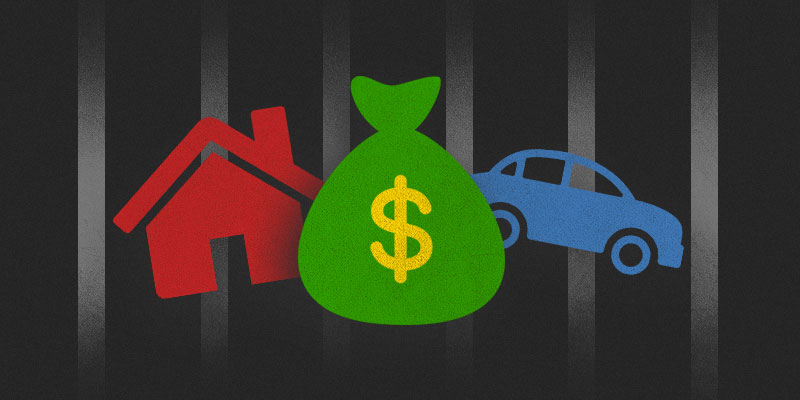Last week State Rep. Arnold Mooney (R-Birmingham) introduced the Forfeiture Database and Reporting Act to create a central repository of data on asset forfeitures to provide lawmakers and citizens with easily accessible information on the practice.
The bill would require law enforcement to report information about the seizures that include, among others, the date of property seizure, the type of property seized, the location of the seizure, and the type of underlying criminal offense that led to the seizure.
Mooney’s bill is the culmination of months-long efforts by concerned lawmakers, the Alabama Policy Institute (API) and other state and national organizations to reform civil asset forfeiture in Alabama.
Last November, the Southern Poverty Law Center (SPLC) invited Jordan Richardson of the Charles Koch Institute and Lee McGrath of the Institute for Justice – two individuals working nationally on asset forfeiture reform – to take part in a a bi-partisan, roundtable discussion on this issue of asset forfeiture for lawmakers and others interested in the issue.
“API and SPLC don’t agree on 99 percent of stuff, but we do agree that we need to monitor civil asset forfeiture,” said Leigh Hixon, Alabama Policy Institute’s senior director of policy relations, in an interview with Yellowhammer News.
Cases like that of Frank Ranelli, who had 130 computers seized from his Birmingham computer repair business in 2010 on suspicion that he was dealing in stolen merchandise, have spurred bipartisan efforts to reform the asset forfeiture practice. Ranelli proved that the merchandise was not stolen, but his property was never returned to him.
In January, State Sen. Arthur Orr (R-Decatur) introduced the Alabama Forfeiture Accountability and Integrity Reform Act to prevent such cases from happening. The bill received bipartisan support but was rejected by groups alligned with Alabama’s law enforcement community.
The presidents of the Alabama District Attorneys Association and the Alabama Sheriffs Association pushed back against Orr’s legislation earlier this legislative session, penning an op-ed at Yellowhammer News which said that the legislation would “essentially gut” one of law enforcements best tools used for fighting crime.
Defending the practice of asset forfeiture against charges of seizing the property of innocents, they wrote, “Law enforcement uses civil asset forfeiture only to go after criminals, and state law already guarantees a process that is clear and fair for any person to challenge forfeiture in court.”
Leigh Hixon said sponsors of the legislature were not comfortable with passing legislation without the support of law enforcement, so they began crafting a proposal in consort with law enforcement that would create a state-wide repository of data on forfeitures.
“To maintain the public’s trust in law enforcement, the government’s power to seize and forfeit private property must be exercised with transparency,” Alabama District Attorneys Association said in a statement on Friday expressing its support for Mooney’s bill.
The Southern Poverty Law Center does not support Mooney’s bill, which it argues does not do enough to reform the practice of asset forfeiture.
Conservative legislators and policy experts clearly have some disagreement with law enforcement about asset forfeiture, but some agree that creating a data system will help maintain public trust in law enforcement, as well as make data available to better inform arguments about the practice.
“Citizens and politicians will have that data available to make the determination for how to move forward on policy in the future,” Hixon said.
Don’t miss out! Subscribe today to have Alabama’s leading headlines delivered to your inbox.
